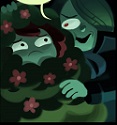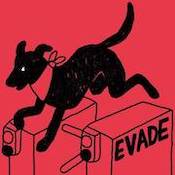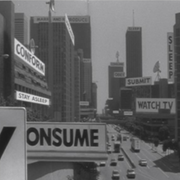|
It's an opinion I've seen a few times re: literary fiction where it just breaks peoples' believability if someone's having a think about some deep issues and then pulls out their cell phone to call someone or something. From what I can tell it comes from the idea that well, folks in classic novels never got out cell phones, so it feels weird when folks in modern novels do. But if everyone did that, people in novels would still be wearing top hats and riding in horse-drawn carriages.
|
|
|
|

|
| # ? May 22, 2024 11:45 |
|
That seems like a weird complaint. I could see how maybe a cell phone can break a conflict, by easily solving some problem, but that's a different thing altogether.
|
|
|
|
Djeser posted:It's an opinion I've seen a few times re: literary fiction where it just breaks peoples' believability if someone's having a think about some deep issues and then pulls out their cell phone to call someone or something. From what I can tell it comes from the idea that well, folks in classic novels never got out cell phones, so it feels weird when folks in modern novels do. But if everyone did that, people in novels would still be wearing top hats and riding in horse-drawn carriages. that's fatuous. so this is literary fiction set in vaguely modern times?
|
|
|
|
I mean, if you want the most realistic depiction possible just never have a character stop using a cell phone.
|
|
|
|
SelenicMartian posted:No, no, the battery is the awesome bit. It's captured baby lightning. Song of the Crow by Layne Maheu is my favorite animal POV. Oh and I think writing is going to have to contend with cell phones and etc eventually so the more people who try it and gently caress up the better. Our reality is going to continue to seem more and more scifi from a literary perspective and we can't only write pre-information age stories and spec fic.
|
|
|
|
sebmojo posted:duncton wood Yeah this. You don't get much more weird small-animal perspective than a series of books that delve deep into the theologies of moles.
|
|
|
|
sebmojo posted:duncton wood
|
|
|
|
Cell phones are an incredibly normal and everyday part of modern life. You really can't write believable contemporary characters anymore and have them never ever use cellphones or the internet, unless they're in some social/cultural situation where their access to technology is restricted. Rather than minimize cell phones in fiction, I think it's better to embrace their presence. Use them, the way they change communication. Use characters not picking up, sending vague text messages, googling things. This is just part of how we live now, pretending it's not there gets weird.
|
|
|
|
Hungry posted:Cell phones are an incredibly normal and everyday part of modern life. You really can't write believable contemporary characters anymore and have them never ever use cellphones or the internet, unless they're in some social/cultural situation where their access to technology is restricted. thanks that's probably the answer i should have given
|
|
|
|
does anyone have any fiction that authentically captures internet communication? whenever i try, it either comes off as super cheesy, or like im an old guy trying to desperately to be understand the youths even tho im 22 and have never known a life before the internet. i want to see how people in prose deal with this kind of stuff because i sure as hell dont know how to
|
|
|
|
i think there are so many different forms of it, irc isn't forum shitposting isn't Facebook wall replies isn't tumblr posts i liked the bit in John dies at the end where they are doing irc and it turns into a demonic chant.
|
|
|
|
Depends on the character, too. Is it someone's grandma who has to pull out her hand-written notes on how to send an email or someone's grandma the former IRIX sysadmin who is checking on her Bitcoin wallet's encryption?
|
|
|
|
flerp posted:does anyone have any fiction that authentically captures internet communication? whenever i try, it either comes off as super cheesy, or like im an old guy trying to desperately to be understand the youths even tho im 22 and have never known a life before the internet. i want to see how people in prose deal with this kind of stuff because i sure as hell dont know how to Both of Sally Rooney's published novels handle long/ongoing email and text exchanges elegantly.
|
|
|
|
i can see why cell phones ruin all conflict because since we've had phones the world has been a great place to live and nobody ever fights. my phone definitely never causes me any problems
|
|
|
|
True. Not all conflicts, but specific ones. There's been jokes about certain stories basically being over instantly if cell phones were a thing in that time period. Oh yeah, here's a College Humor sketch on that: https://www.youtube.com/watch?v=yH2B9F-GPm0
|
|
|
|
is silence of the lambs one? because all the tension of that basement scene really goes away when she could whip out her cell phone and call for help or at least have a flash light.
|
|
|
|
crabrock posted:is silence of the lambs one? because all the tension of that basement scene really goes away when she could whip out her cell phone and call for help or at least have a flash light. it just becomes a new mcguffin to be lost, break, get stolen
|
|
|
|
The Odyssey wouldn't work if Odysseus had a compass and The Canterbury Tales wouldn't work if they all had cars.
|
|
|
|
Lord of the Rings w/cell phones posted:Pippin sat with his knees drawn up and the phone between them.... At first the screen was dark, black as jet.... Then he tapped the link and there came a faint glow and stir in the heart of its screen, and it held his eyes, so that now he could not look away. Soon all the inside seemed red and pulsating; the phone was vibrating, or the fingers within were grasping. Suddenly the lights went out. He gave a gasp and struggled; but he remained bent, clasping the phone with both hands. Closer and closer he bent, and then became rigid; his lips moved soundlessly for a while. Then with a strangled cry he fell back and lay still....
|
|
|
|
Pretty sure cyberpunk cracked a lot of these nuts decades ago.
|
|
|
|
In going over my own writing, I've noticed that I tend to be really aggressive about tacking on descriptions after dialogue. A lot of what I write ends up looking likequote:"We need to steal our cave back," Ugg said, scratching his back nervously. In contrast, an awful lot of fiction I read seems to prefer keeping description and dialogue distinctly blocked out, as in: quote:"We need to steal our cave back," Ugg said. So is there a hard and fast rule here, or is it just stylistic preference? I personal prefer the first example, but that's probably just because it's intuitive to me; I could easily see the second style scanning more fluently across a long story.
|
|
|
|
I think this is a corollary to keeping dialogue tags simple. Adding flourishes sparingly is fine, but if every “he said...” is followed by some kind of description it gets old. Whereas closing dialogue off and then expositing through prose doesn’t have the same element of repetition.
|
|
|
|
Cheap trick: Instead of using a dialogue tag, pair the dialogue with action from that character.quote:"We need to steal our cave back." Ugg scratched his back nervously.
|
|
|
|
Djeser posted:Cheap trick: Instead of using a dialogue tag, pair the dialogue with action from that character. This is a good tip. I continually underestimated readers' abilities to follow dialogue scenes. People are generally good about assuming who is saying what if you do stuff like Djeser said.
|
|
|
|
Djeser posted:Cheap trick: Instead of using a dialogue tag, pair the dialogue with action from that character. This is generally how I tend to write, but I've run into a lot of issues with breaking up action and dialogue. quote:"We need to steal our cave back." Ugg scratched his back nervously. "But the neanderthals probably fortified it and deployed in depth by now; a frontal assault would be suicidal." He threw his hands up into the air. "So maybe it's not worth doing to begin with!" Ugg looked toward Thud. "Don't you agree?" Are there any comprehensive resources for navigating this?
|
|
|
|
feedmyleg posted:Are there any comprehensive resources for navigating this? I kinda prefer separating up dialog with only a couple of actions in pretty short paragraphs - lots of "SPEECH" action "SPEECH" action "SPEECH" makes it super weird to read and follow. Like, pick the One Action that you want to get across and use that as your only separator. In your example: quote:Ugg scratched his back nervously. "We need to steal our cave back. But the neanderthals probably fortified it and deployed in depth by now; a frontal assault would be suicidal." He threw his hands up into the air, then turned to Thud. "So maybe it's not worth doing to begin with! Don't you agree?"
|
|
|
|
Omi no Kami posted:In going over my own writing, I've noticed that I tend to be really aggressive about tacking on descriptions after dialogue. A lot of what I write ends up looking like Thing is, the two examples you give describe two different things. In the first one he scratches his back as he speaks. In the other example he scratches his back after he speaks. So for one it depends on what you want to convey to the reader.
|
|
|
|
"X said" is generally invisible and can be freely sprinkled in among all these examples for variety.quote:"The neanderthals," Ugg said. "They're using modern military tactics."
|
|
|
|
feedmyleg posted:Are there any comprehensive resources for navigating this? Piggybacking off of Whalley, but a good exercise to figure out what works for you might be to just write the dialogue for the scene first, then figure out where it seems right to fit in some physical description. I've been reading the Witcher books lately as I try to expose myself to more writing styles, and the writing there is really weird to me because it's so, so dialogue-heavy when people are talking and so lacking in physical descriptions, but it still works. Since I tend to prefer to have at least a few descriptions to break it up, it's fascinating to read something that leans hard on the opposite end of the scale, and it also allows for some really good moments that physical descriptions could interfere with. For example, there's a whole four segments with absolutely no description and only dialogue, with one of my favorite parts: quote:“Don’t squeal. Practise! Attack, dodge! Parry! Half-piroutte! Parry, full pirouette! Steadier on the posts, drat it! Don’t wobble! Lunge, thrust! Faster! Half-pirouette! Jump and cut! That’s it! Very good!” Obviously the whole book isn't like that, but it's very important to consider that there are a bunch of ways to do what you want. This bit could be done with some physical description, but we already know these characters decently by this point, so we can mentally see what they're doing well enough and the breathless pace of it and the "wait, what" ending probably would be weakened by more description. That's why I'd suggest trying to write the dialogue first, then seeing how adding description sparingly around it goes.
|
|
|
|
feedmyleg posted:This is generally how I tend to write, but I've run into a lot of issues with breaking up action and dialogue. Also look into your formatting. Strunk and White posted:In dialogue, each speech, even if only a single word, is a paragraph by itself; that is, so, without changing any wording: quote:"We need to steal our cave back." At this point, you can probably merge some of your action parts. It still starts feeling a little awkward, though. I'd consider just merging the dialog. quote:"We need to steal our cave back. But the neanderthals probably fortified it and deployed in depth by now; a frontal assault would be suicidal." It's still kinda awkward, though. I'd probably just use one action to identify the speaker, then switch to alternating speaker without any tags.
|
|
|
|
Hm, yeah I tend to be a very visual writer; I imagine the scene in my head and then try to translate it into words. Maybe I'm just trying to do too much work for the reader and not let enough up to the imagination. A particularly egregious example from a current draft:quote:“Ah.” The man pursed his lips and gave a slow nod. “I suspect you got that idea from one of your science-fiction magazines, yes?” Based on the S&W I can see breaking that up into more paragraphs, but stylistically I feel like a good amount of the mood would be missed if I cut out some of those action details. feedmyleg fucked around with this message at 21:01 on Feb 4, 2019 |
|
|
|
I think you can over describe physicality during dialogue, i call it blocking after the theatrical term. It's one of the things, like adverbs, where it's a strong candidate for cutting ruthlessly during the edit.
|
|
|
|
Springboarding a bit off of the cell phone discussion from a couple of days ago: I'm working on a horror novel that, to put it broadly, involves technology to a decent degree, and I'm kind of struggling with when I should set it. I figure I have two options: 1) set it in the present, and contend with the necessary evils of either accounting for readily-available and really drat useful things like cell phones, or come up with some explanation for why they can't be used as intended or 2) shift it into the past (probably the late 80s/early 90's) and avoid some of those problems entirely. My inclination is to go with option 2, in part because I think the story benefits from being set at a time where stuff like video and audio recording tech, and computing power, wasn't as accessible to the average person. But I'm worried that if I do that, it'll transparently feel like I set it pre-information age purely to not have to deal with those problems, and that I'll then have to do a lot of footwork to make sure I'm technologically accurate from a historical perspective (though that wouldn't be too onerous, I think). Any thoughts on going with one option over the other? I think the story also benefits from a certain degree of geographical isolation that's a little harder to achieve if the main character can just shoot an email to someone across the country with digital stills asking "yo wtf is happening here"
|
|
|
|
|
MockingQuantum posted:Springboarding a bit off of the cell phone discussion from a couple of days ago: Unless you think the tone/"feel" of the 80s would suit the story better, or you're cynically shooting for Stranger Things nostalgia, I think you'd do better to set it in the current time. You mentioned geographical isolation. I live in New Mexico and there are big chunks of the state where cell service isn't available at all. People on (IIRC) T-Mobile have told me they basically only get service along the I-40 and I-25 interstates. Some places you can make calls but data isn't available. Some places you get enough of a signal to see a few bars on the screen, but if you try to make a phone call it'll drop immediately. Other things to consider: a lot of people are absolutely dogshit at answering email, so although the guy can email someone across the country, it may be a week before he gets an answer, or he might go straight into the spam folder. I've seen SMS messages between iPhones and other phones get delayed for days with no indication to the sender that this is happening. Contact info on websites can be out of date, like a guy quit but they still have his extension listed rather than his replacement. Also, now that everybody's on the Internet, it's super full of cranks. If your character sends an email with a bunch of pictures to somebody who's well-known in a particular field, she might just delete it out of hand because she already gets 20 emails a week proving Bigfoot exists.
|
|
|
|
Also, if a story problem can be solved by a simple phone call then it probably wasn't a very interesting problem to begin with. Allow the restrictions created by the use of technology to force your story to be more well-rounded.
|
|
|
Pham Nuwen posted:Unless you think the tone/"feel" of the 80s would suit the story better, or you're cynically shooting for Stranger Things nostalgia, I think you'd do better to set it in the current time. Thanks, this is all good stuff worth pondering, I'll mull over it a bit. feedmyleg posted:Also, if a story problem can be solved by a simple phone call then it probably wasn't a very interesting problem to begin with. Allow the restrictions created by the use of technology to force your story to be more well-rounded. Oh for sure, and fundamentally none of the big plot problems are solvable with something as simple and straightforward as a phone call, I'm thinking in a broader sense of the world feeling more isolated. Like, I grew up in North Dakota in the late 90's/early 2000's, and even that late, traveling through the middle of the state felt like you were kind of on your own in the middle of nowhere, given how spotty cell signal was. I really want the setting to feel like the MC is kind of on their own, while still being in the middle of the country. Honestly it was reading Universal Harvester that made me even consider setting it earlier, that book has a feeling of unsettling, lonely nostalgia that I really liked, but I'm not sure it's something that I could or should straight-up manufacture for this book.
|
|
|
|
|
I mean, you can get around this too. Maybe your ghosts or whatever don't show up in photographs, because reasons. Maybe there's no cell reception (or terrestrial Internet) because *weird supernatural poo poo*. Maybe all electronic devices get hit by ghost-EMP halfway through your story. You could even use this to drive tension. Your protagonist is used to being online 24/7, but then spooky stuff happens on their phone, and *then* they're completely cut off.
|
|
|
|
Yeah, I'm all for going period for the sake of mood/story/feeling/atmosphere if that's what you want your work to be, even if that setting isn't inherent to the story. It only becomes a problem if you're overly cloying with it ala Ready Player One and it detracts from the narrative. I just don't think you should feel your hands are tied by modern technology if you do want to place it in the present.
|
|
|
|
I’ve been staying in a few different cities this week where my phone straight up didn’t work in my accommodation and I was informed to walk down to the local corner store if I wanted cell reception. It’s definitely still a thing in New Zealand as well as my hometown in the US. But at the same time everyone’s also gotten rid of their landlines, so if anything it feels more isolated. There’s also power outages and dead batteries. A property of the ghosts/supernatural poo poo could be draining batteries, as touched upon upthread. It’s something people are totally willing to roll with and can be used to introduce extra fear and anxiety to your protag.
|
|
|
|

|
| # ? May 22, 2024 11:45 |
|
feedmyleg posted:Hm, yeah I tend to be a very visual writer; I imagine the scene in my head and then try to translate it into words. Maybe I'm just trying to do too much work for the reader and not let enough up to the imagination. A particularly egregious example from a current draft: Ever try writing something more visual? A short movie or even maybe a comic book?
|
|
|































